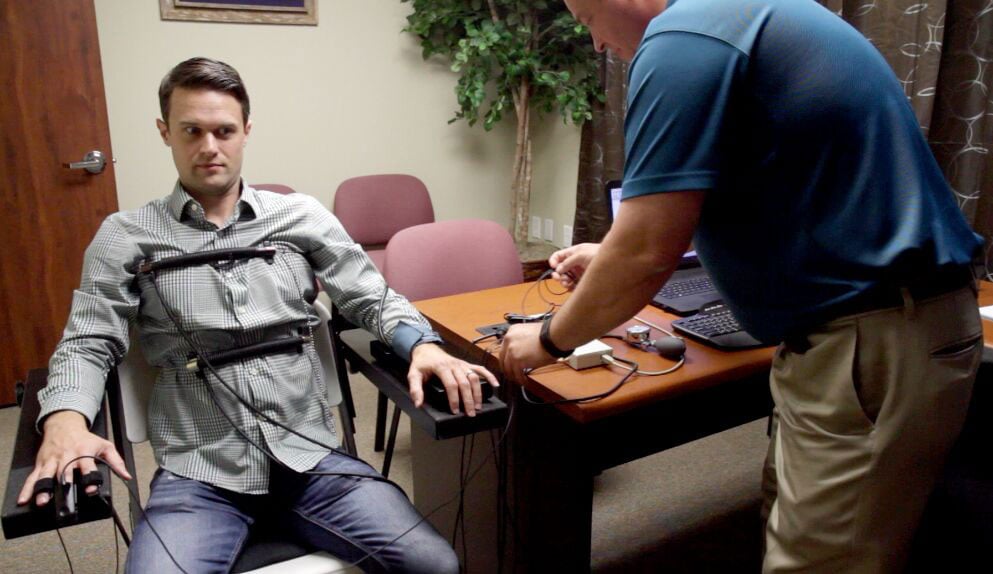Unmasking Truth: The Deception Detector Experiment
Unmasking Truth: The Deception Detector Experiment
Blog Article

Welcome to the exploration of uncovering truth through the fascinating world of lie detector tests. Dating back to the early 20th century, these tests have been a source of both intrigue and controversy. The prospect of delving into the intricacies of human deception has captivated researchers, psychologists, and the general public alike. By examining physiological signals and behavioral cues, lie detector tests aim to shed light on the mysterious interplay between truth and deception. Let's embark on this journey of decoding the complex web of lies and uncovering the subtle truths that lie beneath the surface.
Polygraph
History of Lie Detectors
Lie detector tests, also known as polygraph tests, have a fascinating history that dates back to the early 1920s. The creator of the modern polygraph, John Augustus Larson, developed the device in Berkeley, California, and it was further refined by Leonard Keeler in the 1930s. The main idea behind these tests is to measure physiological indicators such as heart rate, blood pressure, and respiration to determine if someone is being deceptive.
Over the years, lie detectors have been used in various settings, including criminal investigations, employment screenings, and intelligence agencies. They gained popularity in the United States during the mid-20th century as a tool to aid in interrogation and decision-making processes. Despite their widespread use, the accuracy and reliability of polygraph tests have been a subject of debate among scientists and legal professionals.
Today, the use of lie detector tests is still prevalent in certain fields, although their effectiveness in detecting deception remains controversial. Researchers continue to explore new technologies and methods to improve the accuracy of lie detection, but the quest for a foolproof deception detector remains ongoing.
Types of Lie Detector Tests
There are several types of lie detector tests commonly used to uncover deception. One of the most well-known is the polygraph test, which measures physiological responses such as heart rate, blood pressure, and sweating to determine if someone is being truthful. Another type is the voice stress analysis test, which analyzes changes in a person's voice frequency to detect signs of deception.
A newer technology on the scene is the functional magnetic resonance imaging (fMRI) lie detection test. This method monitors brain activity to identify patterns associated with lying. It is believed to provide more accurate results compared to traditional lie detector tests, as it directly observes brain functions related to deception.
In recent years, the Computerized Voice Stress Analysis (CVSA) test has gained popularity. This test measures slight variations in speech patterns caused by stress, indicating potential deception. While not as widely accepted as the polygraph, the CVSA test offers a non-invasive alternative for detecting lies.
Accuracy and Controversies
When it comes to lie detector tests, one of the key points of contention is their accuracy. While proponents argue that these tests can detect deception with a high level of certainty, critics point to the fact that the accuracy of such tests can be influenced by various factors, including the skill of the examiner, the type of questions asked, and the physiological responses of the person being tested.
Another controversial aspect of lie detector tests is their validity as evidence in legal proceedings. While some jurisdictions allow the results of these tests to be introduced as evidence in court, others deem them unreliable and inadmissible. The debate continues as to whether lie detector tests should be considered a definitive tool for uncovering the truth or merely as a suggestive indicator that requires further investigation.
Overall, the use of lie detector tests remains a topic of debate within the scientific community and beyond. While some studies suggest that these tests can be effective in detecting deception, others argue that their reliability is questionable. As technology advances and our understanding of human behavior deepens, the accuracy and controversies surrounding lie detector tests are likely to remain a complex and intriguing area of study.
Report this page